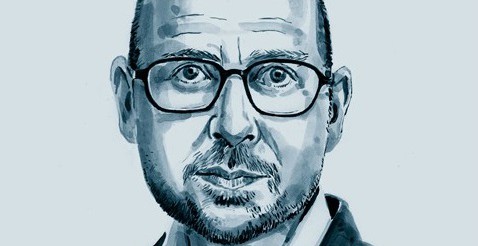When screening becomes a bum deal

Fifty. Uncertainty begins to replace youthful certainty. Children leave home and seek their advice from peers. Young doctors begin to question your advice. It’s a watershed.
Screening can cause harm, but no one wants to hear this
In Scotland on your birthday you receive an invitation for bowel screening with an FOB kit enclosed. Being a card-carrying sceptic I am naturally suspicious of the simplistic certainty screening programmes such as this purvey. The idea that screening ‘must be a good’ and ‘saves lives’ seems to pervade all discussions.
The harms are always played down, but these harms are real and significant. Like major over-diagnosis of breast cancer in breast screening [1] or cervical incompetence and increased peri-natal mortality associated with cervical screening [2]. It is extraordinarily difficult to explain the pros and cons of these interventions even to doctors. And even trying to question the medical orthodoxy of screening on the likes of Twitter, sees a baying mob descend (who seem to have drunk 10 pints to aid their reasoning, even at 8am).
I decide to do some background research on bowel screening. I go to Cochrane and look for systematic reviews. Then I feel deflated. Bowel screening looks pretty effective, with a 15% relative reduction in bowel cancer deaths over the study periods [3]. Perhaps all those do-gooder public health herds are right?
But as an obsessive I need to crunch the numbers myself. The 15% risk reduction is ‘relative’ [3] and, of course, needs to be considered in context of the incidence rate to calculate the real benefit. The incidence of bowel cancer between 50 and 60 is low, thankfully. So screening over this decade we need to screen roughly 4,000 men and 5,500 women to prevent one patient dying [4]. This is known as the screening paradox, the individual never benefits, despite decades of screening investigations.
But many of these healthy patients – around 2% – will have a false positive result in any one screening round. The test is offered every two years [5], so over a 10-year period the risk of a false positive and needing a colonoscopy is 10%. The numbers need to harm in the healthy screened population is related to the risk from unnecessary colonoscopy. And is very roughly one in 10,000 for bowel perforation and one in 2,000 for other serious complications [6]. Then there is unknown risk of over-diagnosis with the associated unnecessary surgery and chemotherapy.
Consider also the ‘all cause mortality’ was not reduced in the bowel screening trials. This means the screened population are actually no more likely to be alive at the end of the screening period, than the non-screened population. Lastly, better medical treatment has seen bowel cancer death rates fall by 40% since the 1990s and it seems likely they will fall further [7]. Better survival means that the numbers needed to screen to benefit will continue to rise, while the risks of intervention remain fixed.
All very technical and people might argue over the numbers. But put bluntly, the risk versus benefit is extremely marginal for anyone under the age of sixty. So why am I offered screening at 50 in Scotland and why is this different from the rest of the UK?
I am certain that I will decline bowel screening and uncertain if I will bother when I am 60. Screening doesn’t prevent you dying but just means you die from something else unpleasant. Screening can cause harm, but no one wants to hear this.
Dr Des Spence is a GP in Maryhill, Glasgow, and a tutor at the University of Glasgow
References
Pulse July survey
Take our July 2025 survey to potentially win £1.000 worth of tokens

Visit Pulse Reference for details on 140 symptoms, including easily searchable symptoms and categories, offering you a free platform to check symptoms and receive potential diagnoses during consultations.










